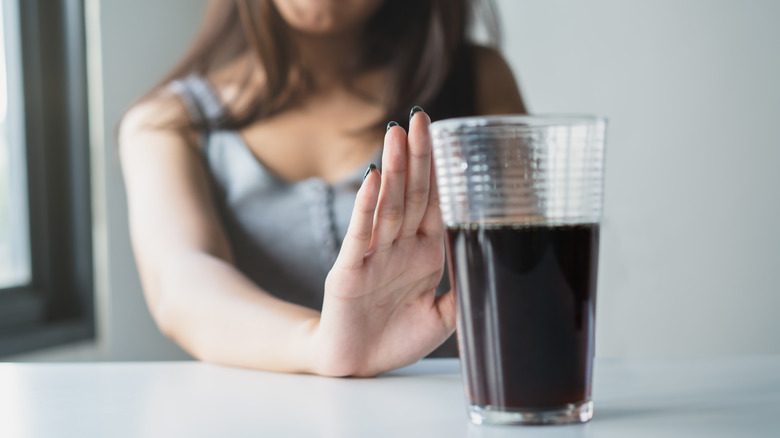The Connection Between Gas And Acid Reflux Explained
If you've ever felt a burning sensation in your throat or chest after drinking coffee or eating a big meal, you know what acid reflux feels like. It's not a pleasant feeling, but unless it persists or worsens, occasional acid reflux is generally not harmful. The same goes for the sensation of fullness or the need to pass gas (or belch) after drinking something carbonated or eating certain foods. The two conditions seem pretty different, but researchers have discovered that they may actually be related to one another.
Acid reflux, the commonly used term for gastroesophageal reflux (GER), is when stomach acid flows the wrong way into your esophagus (via Mayo Clinic). A more serious type of GER can happen when the one-way valve that controls the flow of stomach acid between your stomach and esophagus is actually weaker than it should be (via UChicago Medicine). This allows not only acid, but also bile and food to make their way into your esophagus. Because this happens at least two times a week, it can cause irritation and inflammation of the esophagus, and in some cases can even lead to cancer. This condition is known as gastroesophageal reflux disease, or GERD.
Gas, reflux, or both?
The most common symptom of GERD tends to be heartburn, but it can also cause excess gas that leads to bloating and belching. GER and GERD aren't the only causes of excess gas. Some people aren't able to totally digest certain foods because they lack the proper enzymes (via Healthline). When food that hasn't been digested is processed by bacteria in the colon, the bacteria release gas. As this smelly gas builds up, your body has to release it one way or another.
Acid reflux and gas appear to have several connections. First, the same foods and habits that can trigger acid reflux can also be the culprit behind excess gas. Eating too much food at one time, for instance, can cause both issues to flare. Carbonated beverages like beer and soda can produce both gas and acid reflux because of the acidic carbon dioxide that makes them bubbly.
If you already have gas and try to relieve the pressure by belching, you may be forcing excess acid into your esophagus as well. Fortunately, a combination of lifestyle changes, such as weight loss and diet shifts — as well as certain medications — can help with symptoms of both.


